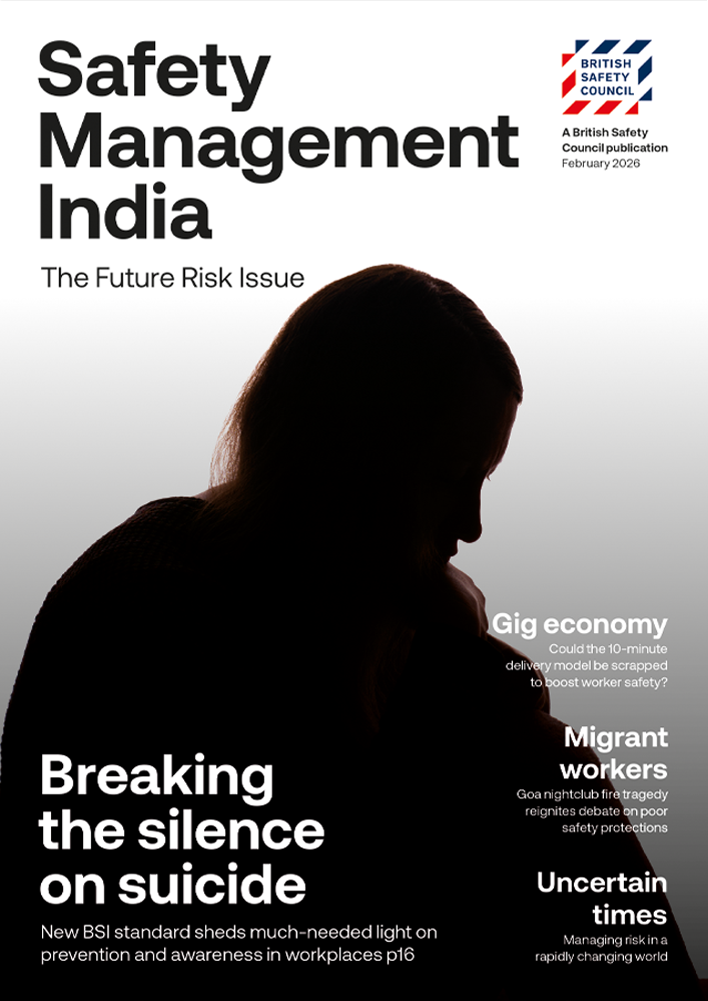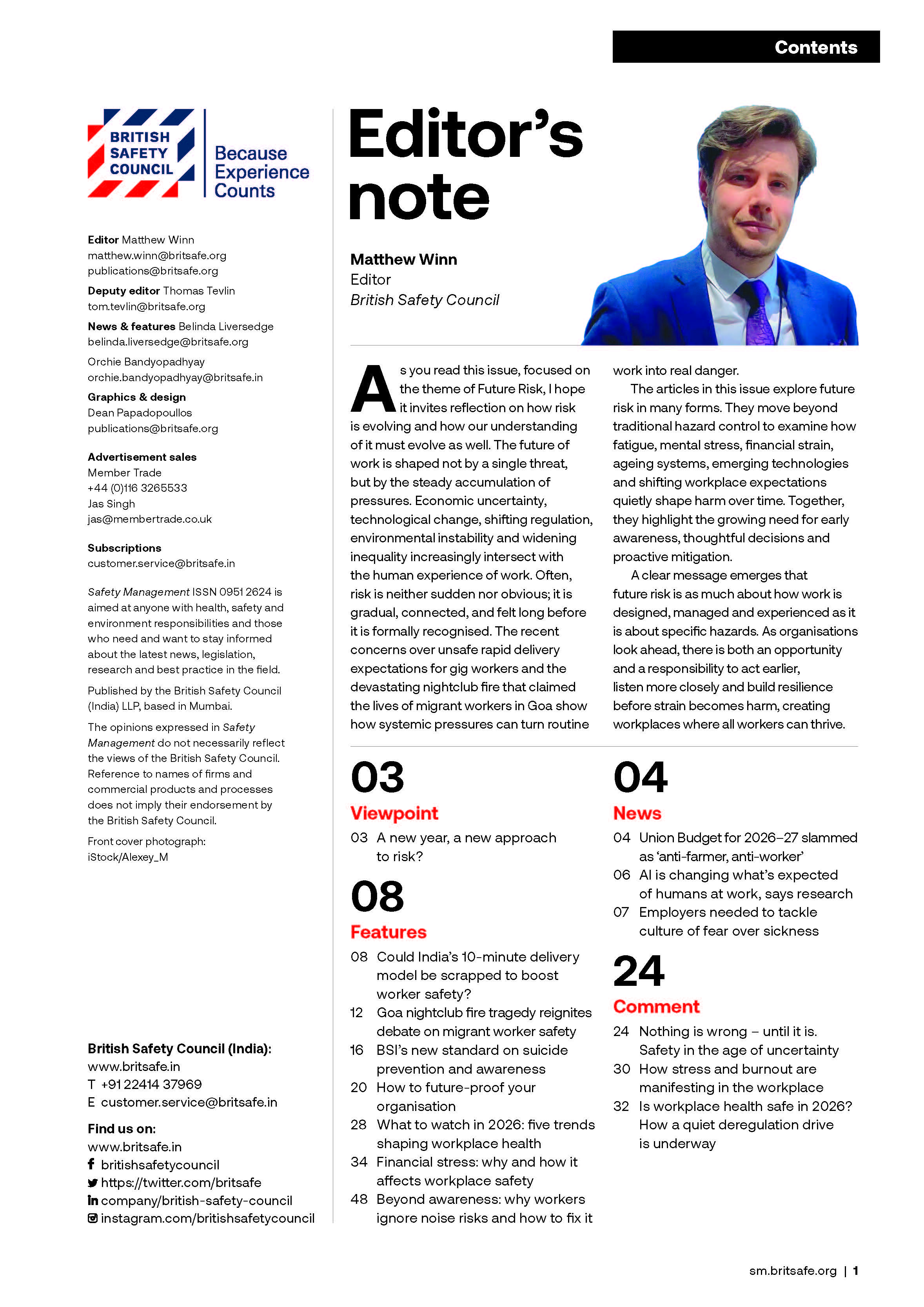Indian businesses have been urged to step up their efforts to tackle work-related stress and better support employees’ mental wellbeing after a survey revealed that 80 per cent of the country’s workforce reported experiencing symptoms of poor mental health in the past year.
News
Deloitte study shows 80 per cent of employees report poor mental health
The $14 billion cost of poor worker mental health in India highlights urgent need for employer action, says the consultancy firm.
Indian businesses have been urged to step up their efforts to tackle work-related stress and better support employees’ mental wellbeing after a survey revealed that 80 per cent of the country’s workforce reported experiencing symptoms of poor mental health in the past year.
The research by Deloitte Touche Tohmatsu India LLP (DTTILLP) found that among the 80 per cent of employees reporting poor mental health, 47 per cent said work-related stress was the biggest factor affecting their mental wellbeing.
 Photograph: iStock
Photograph: iStock
This was closely followed by financial stress (47 per cent) and issues connected to Covid-19, such as worries about personal health and wellbeing (42 per cent).
However, 39 per cent of those experiencing poor mental wellbeing did not take any steps to try to manage their symptoms – such as seeking professional help – with around a quarter of this group saying this was because they a negative impact on their personal and professional reputation at work.
In fact, 33 per cent continued working despite experiencing mental health difficulties, 29 per cent took time off to try to cope with the symptoms and 20 per cent resigned from their job due to the impact of mental health problems.
The study – which is based on interviews with around 4,000 Indian employees conducted in late 2021 and spring 2022 – also estimates that poor mental health among employees cost Indian businesses around Rs 1.1 lakh crore (US$14 billion) in the past year due to absenteeism, presenteeism (where people attend work despite being unwell and therefore perform below their best), and attrition (employee turnover).
Out of the total cost of Rs 1.1 lakh crore, Rs 14,000 crore was due to absenteeism, presenteeism accounted for Rs 51,000 crore and employee turnover cost Rs 45,000 crore.
Commenting on the findings, Punit Renjen, Deloitte’s global CEO, said: “The challenges of the past two-plus years have brought conversations about mental health at work to the forefront.
“This study demonstrates that businesses must prioritise the mental health and wellbeing of their people. It is essential that senior leaders play a major role in destigmatising mental health challenges within their organisations. We need to take the necessary steps to create an environment where employees’ wellbeing is prioritised, and they have access to the support they need, so that everyone can thrive.”
Charu Sehgal, partner and life sciences and health care leader, at DTTILLP, added: “Mental health-related challenges are not new to the Indian workforce, but these have come to the forefront in light of Covid-19, and a younger workforce that is open to speaking about their individual wellbeing.
“While most Indian corporates have recognised the importance of employee wellbeing, the share [the provision by employers] of mental health measures at the workplace is still limited, with a few sporadic events and the use of third-party employee assistance programmes.
“With the generational shift that we are witnessing in our workforce, employers have the opportunity to hit reset and fundamentally re-evaluate the ways of working to address root causes [of poor mental health] and drive greater inclusion and wellbeing through enabling talent policies.”
Sehgal added: “Raising awareness and destigmatising challenges pertaining to mental health can help employees access assistance early. As responsible corporate citizens, the onus is on India Inc. to act and establish a framework to manage psychological health and wellbeing in the workplace and create a culture of trust to ensure long-term benefits for employees as well as the organisation.”
The report calls on Indian businesses to implement effective workplace mental wellbeing programmes, including creating “a culture where workers feel secure when talking about their mental health at work”, and establishing “a comprehensive strategy that helps people stay healthy at work, tackles the root causes of work-related mental health problems, and supports those experiencing mental health symptoms”.
It adds: “Several of the measures captured in the report are smaller acts of support and relatively inexpensive, in relation to the potential loss of productivity due to poor workplace mental health.
“Encouraging regular catch-ups with managers, flexible working hours, work-life balance, and peer support can make a significant difference to all employees, irrespective of their mental health.
“But above all, creating a culture where workers feel empowered and free to talk about their mental health at work is the most important part.”
The report concludes: “Employers have a unique opportunity where they can replace negative attitudes and discriminatory behaviours about mental health in the workplace with acceptance and inclusion.
“Doing so, will not only improve the wellbeing of their workforce but ensure long-term benefits for their productivity and overall organisational culture.”
Mental health and wellbeing in the workplace 2022 survey can be found here
NEWS


Union Budget for 2026–27 slammed as ‘anti-farmer, anti-worker’
By Orchie Bandyopadhyay on 13 February 2026
The Union Government’s claim its 2026–27 Budget will improve the lives of the “poor, underprivileged and the disadvantaged” has been met with sharp criticism, with opposition parties claiming the announced measures fail to tackle deep-rooted problems such as youth unemployment, falling standards of living in the agricultural community, and inadequate salaries for key public health workers.




